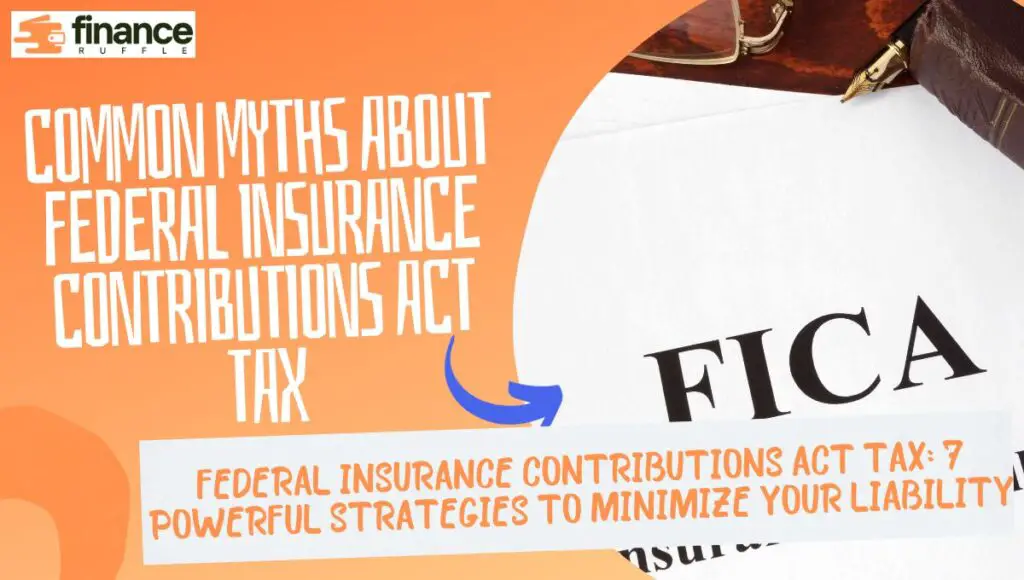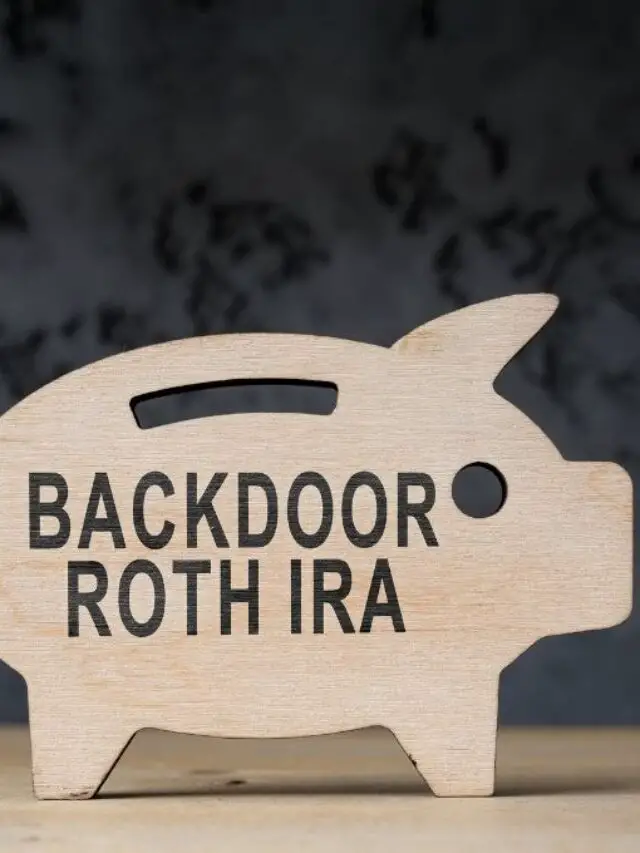Have you ever glanced at your paycheck and wondered about that tiny but persistent chunk vanishing every month? Odds are, you’re looking at the Federal Insurance Contributions Act Tax or FICA. These deductions may appear trivial but hold incredible importance for societal functioning. But what is the FICA Tax, and how does it relate to your financial destiny? This article delves into the nitty-gritty of Federal Insurance Contributions Act Tax, providing an in-depth understanding.
Table of Contents
History of Federal Insurance Contributions Act Tax
Origins
The 1930s were a tumultuous era, notably marked by the Great Depression. It was during these trying times that the FICA Tax was born. Enacted in 1935 as part of the New Deal, this tax aimed to provide a safety net for the elderly and the unemployed. Initially simple, it was an economic bandage placed on the wounds of society.
Evolution
As years ticked by, the Federal Insurance Contributions Act Tax evolved significantly. Amendments like the Social Security Act of 1939 and the Medicare Act of 1965 expanded its reach and complexity. Consequently, the FICA Tax became more than just a mere Social Security provision; it grew into an extensive system affecting almost every American worker.
Basics of Federal Insurance Contributions Act Tax
Definition
So, what exactly is this FICA Tax? In layman’s terms, it’s a federal payroll tax. Both employers and employees must contribute to it. The money gathered gets funneled into two principal programs: Social Security and Medicare.
To understand what the Federal Insurance Contributions Act (FICA) is, it’s essential to recognize it as a federal law established to fund Social Security and Medicare programs through payroll taxes. The Federal Insurance Contributions Act definition encompasses a law mandating a payroll tax equally shared between employees and employers, contributing to Social Security and Medicare.
Components
| Program | Description |
| Social Security | Provides benefits to retirees, disabled individuals, and survivors of deceased workers. |
| Medicare | Offers healthcare coverage primarily for those 65 and older. |
Calculation
Now, let’s talk numbers. Imagine you’re earning $50,000 annually.
| Deduction Type | Rate | Calculated Amount |
| Social Security | 6.2% | $3,100 |
| Medicare | 1.45% | $725 |
Why Federal Insurance Contributions Act Tax Matters
Public Services
A common question is, ‘Where do FICA contributions go?’ The answer lies in their allocation to two critical programs: Social Security, providing benefits to retirees and disabled individuals, and Medicare, offering healthcare coverage primarily to those aged 65 and older.
Society’s backbone is often made of public services like healthcare, unemployment benefits, and retirement pensions. These services heavily rely on the money collected via the Federal Insurance Contributions Act Tax. Simply put, without this tax, the government would struggle to provide these essential services.
Security Net
Ever thought about what would happen if you lost your job or faced a health emergency? The Federal Insurance Contributions Act Tax ensures you don’t plummet into financial chaos. Your past contributions to this tax help fund unemployment benefits and health coverage.
Individual Importance
Beyond societal benefits, your Federal Insurance Contributions Act Tax contributions determine your future Social Security and Medicare benefits. Essentially, you’re not just paying a tax; you’re investing in your future well-being.
How the Federal Insurance Contributions Act Tax Operates
Employers
Ah, employers, the other half of the Federal Insurance Contributions Act Tax equation. By law, employers need to match the FICA contributions made by their employees. Not only do they handle the complex process of deductions, but they also have a responsibility to forward these funds to Uncle Sam.
Employees
If you are an employee, your focus tends to be your paycheck’s bottom line. Yet, it’s crucial to understand that the Federal Insurance Contributions Act Tax is an obligatory contribution. Your employer deducts it from each paycheck before you even see the money. It’s out of sight but shouldn’t be out of mind.
Self-Employed Individuals
For those donning multiple hats as their boss, the Federal Insurance Contributions Act Tax rules still apply. If you’re self-employed, you’re responsible for both the employee and employer portions. Yep, you read that correctly!

Common Myths about Federal Insurance Contributions Act Tax
Myth 1: “Federal Insurance Contributions Act Tax Only Affects Low-Income Folks”
Contrary to this misbelief, the Federal Insurance Contributions Act Tax is a universal imposition. Regardless of your income, these contributions provide benefits that every American may need someday.
Myth 2: “No Way Around Paying Federal Insurance Contributions Act Tax”
Some folks reckon they can dodge the Federal Insurance Contributions Act Tax. Let’s debunk this: while certain specific exemptions exist, the vast majority must cough up their fair share.
Federal Insurance Contributions Act Tax and Retirement
Preparing
Given that the Federal Insurance Contributions Act Tax plays a colossal role in determining your Social Security benefits, adequate preparation becomes paramount. Contributing more now leads to receiving more during your golden years. Essentially, it’s a long-term game of give and take.
Consequences
Your retirement stash isn’t solely built on personal savings or investments. Federal Insurance Contributions Act Tax contributions directly impact the kind of lifestyle you can maintain post-retirement. It’s not just about “paying the taxman”; it’s about financing your future relaxation.
Recent Changes and Future Trends
Legislative Shifts
Recent laws have tinkered with the Federal Insurance Contributions Act Tax. For instance, the Secure Act of 2019 made significant alterations, mainly aimed at enhancing retirement savings. These tweaks constantly redefine how the Federal Insurance Contributions Act Tax functions.
Predictions
The future remains unpredictable, but experts surmise that changes in the Federal Insurance Contributions Act Tax might include rate adjustments or benefit modifications. Regardless, keeping abreast of these shifts could be immensely beneficial.
Conclusion
As we cap off our extensive voyage through the labyrinth that is Federal Insurance Contributions Act Tax, let’s acknowledge that it isn’t just an item on a payslip. It’s a pivotal part of our social contract, an investment in public services, and most vitally, an investment in our future security and well-being.
Actionable Tips
- Stay Updated: Keep an eye out for changes in Federal Insurance Contributions Act Tax rates or rules.
- Plan: Include the Federal Insurance Contributions Act Tax in your retirement planning; it makes a difference.
- Understand: Don’t overlook the societal importance of the Federal Insurance Contributions Act Tax.
Farewell Thought
As we wrap up our discussion on FICA Tax, it can be inferred that a proper understanding of how expensive and elaborate FICA all is important to appreciate the fact which goes beyond deduction on payslip. It is an important part of our social contract, making sure the long-standing success and solvency issue of Social Security as well as Medicare. Knowing the very basis of FICA, starting from how it is defined to where its contributions are spent, by doing so we learn how vital this is to our financial and societal stability.
References
- Federal Government publications on Federal Insurance Contributions Act Tax
- Scholarly articles examining Federal Insurance Contributions Act Tax
Frequently Asked Questions (FAQs)
- What’s the 411 on current FICA tax rates?
Hold up! If you’re looking for up-to-the-minute digits, you’ll want to make a beeline to the IRS website. But here’s the lowdown: currently, Social Security tax sits at 6.2% for you and an equal match from your employer. Medicare? That’s 1.45% each way. Those numbers, however, could be subject to change. So, stay on your toes. - Can I get a refund on FICA tax, or is that money gone, baby, gone?
Here’s the deal: FICA taxes usually don’t boomerang back to you. However, some funky situations might qualify you for a refund. Got two jobs and paid too much? You might get lucky. A tax advisor can spill the details tailored to your situation. - I’m not a U.S. citizen. Does Uncle Sam still want a slice of my pie?
Great question! While you might be thinking you can dodge the FICA bullet, you might need to think again. Complex rules apply to non-residents. And believe me, you’ll want an expert in international tax law to give you the nitty-gritty on this. - Once I’m chillin’ in retirement, do I kiss FICA goodbye?
Freedom at last? Sort of. You won’t pay FICA on Social Security or retirement account bucks, but snag a part-time gig and you’re back in the FICA game, my friend. - Investments are also making me some dough. FICA wants in on that too, right?
Nah, investments are safe territory. FICA is strictly a payroll tax kinda thing. So, your dividends, capital gains, or whatever else you’ve got cooking on Wall Street, they’re off the hook. - What happens if the bossman skips out on paying the FICA tax?
Look, if your employer tries to ghost Uncle Sam, it’s a big no-no. We’re talking hefty fines, and yeah, even potential jail time. Play it safe; don’t mess with the taxman. - I’m my own boss. FICA still knocking on my door every quarter?
Yep, welcome to the double whammy. As a self-employed superstar, you get the pleasure of paying both the employee and employer portions. Four times a year, make friends with estimated tax payments. - Tax season’s here. How do I spill the tea on FICA when filing?
You, the salaried worker, can sit back and relax. Your employer’s got this. But if you’re juggling self-employment, get ready to tango with Schedule SE when tax time rolls around. - Wearing two hats as an employee and a freelancer. What’s the FICA sitch?
Ah, the side hustle life! You’ll be paying FICA for both gigs, buddy. But don’t forget, you can only be taxed up to the income cap for Social Security. - Is there a cap, like a ceiling, on how much income FICA can touch?
You betcha! For Social Security, you’re only on the hook up until a certain income level. For 2022, you can wave goodbye to FICA once you hit $147,000. But remember, Medicare is always lurking, cap or no cap.

Prashant Chauhan
Author @ Finance RuffleMeet Prashant Pratap Chauhan, the savvy founder behind Finance Ruffle, a hub for sharp financial insights and expert analysis in the realm of finance blogging.









